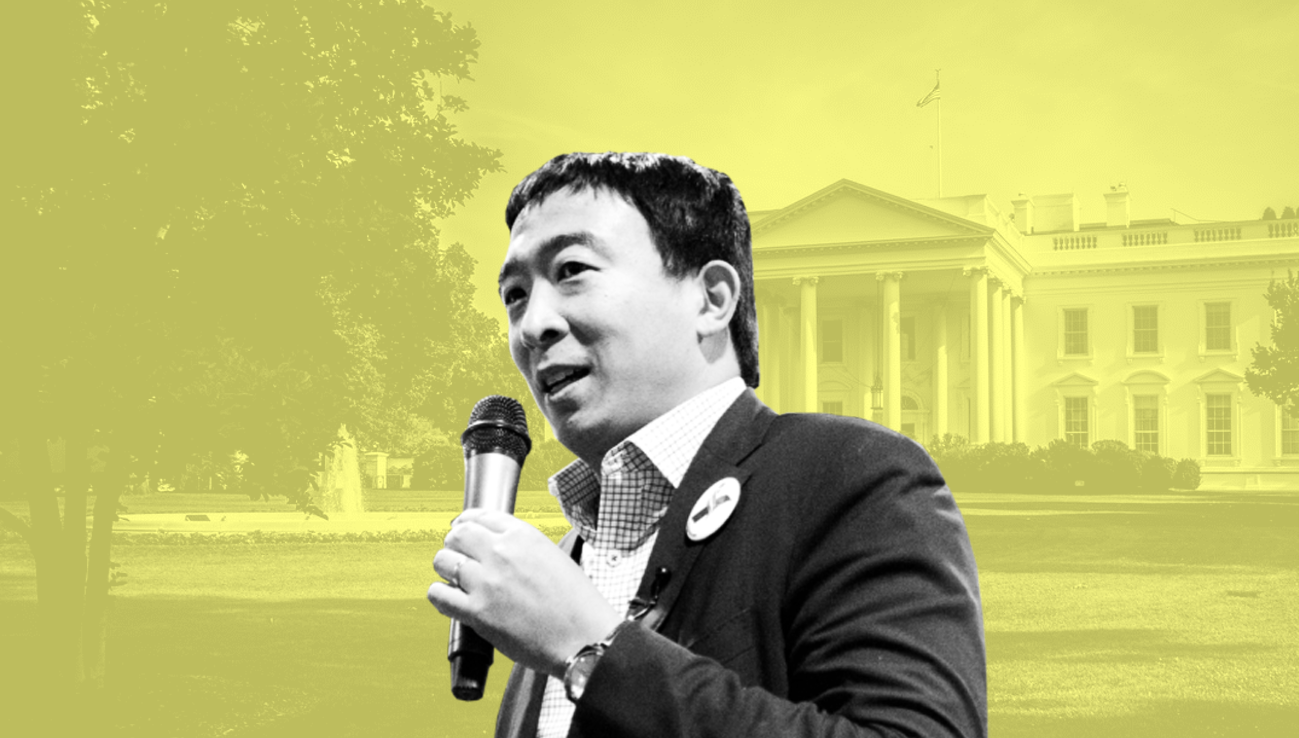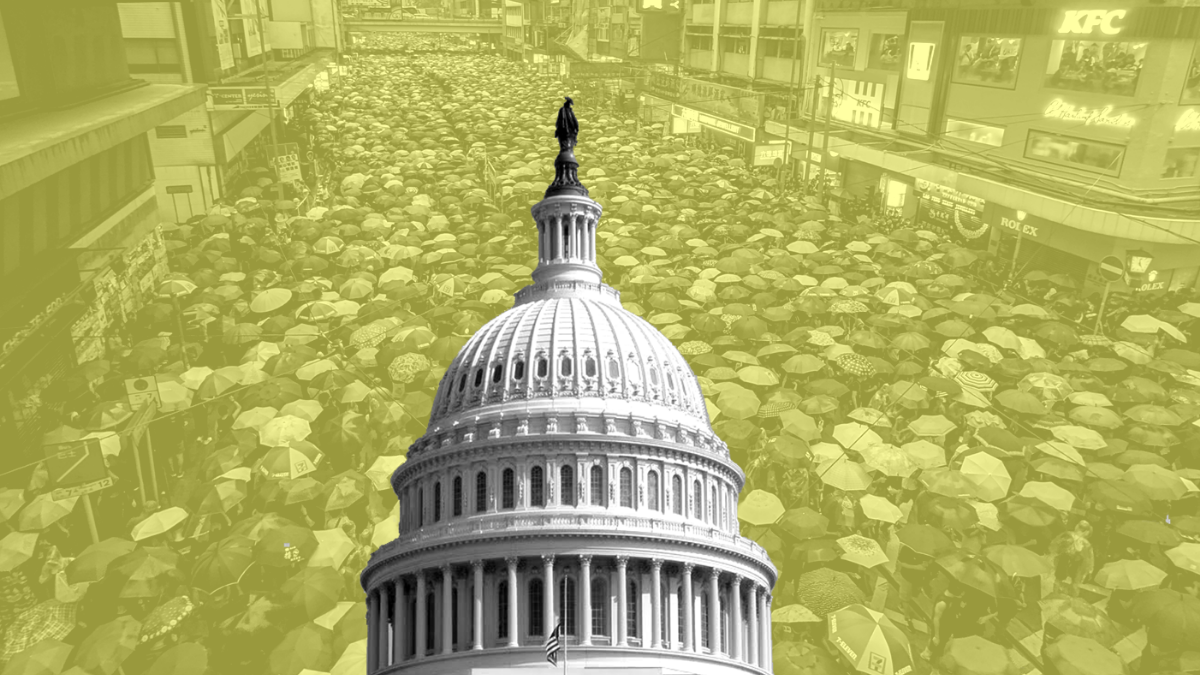The Big Story
DEEP DIVE—SENATE IMPASSE THREATENS FUNDING FOR AANAPI-SERVING INSTITUTIONS: Congress’ failure to reauthorize more than $255 million in critical funding for the nation’s minority-serving educational institutions last month has thrown the future of some college Asian American Pacific Islander (AAPI) programs into doubt. Here are the details…
- What’s happening: For nearly a decade, Congress has allocated millions of dollars to Asian American and Native American Pacific Islander-Serving Institutions (AANAPISI) under the Higher Education Act. The federal funding has been used to strengthen programming for low-income or first-generation AAPI students, and a two-year extension was approved by the House through the bipartisan FUTURE Act in September.
- But the bill was blocked from moving forward in the Senate by Sen. Lamar Alexander (R-Tennessee), who is seeking to address the funding in a broader higher education package, Education Dive reports. Alexander has put forward his own legislation that would make the $255 million in funding to minority-serving institutions permanent.
- Why this matters: While the U.S. Department of Education says that money for AANAPISIs will carry over through the next fiscal year, AAPI activists fear that Congress has created a cloud of uncertainty over the agency’s 14 AANAPISI grants, which total around $4.5 million. The federal government designates an institution as an AANAPISI if at least 10% of its students are AAPI (among other eligibility requirements), and Asian-serving institutions have historically struggled to attract visibility and resources compared to Hispanic-serving institutions and HBCUs.
- The impacts: The potential loss of funding is already threatening the existence of AAPI-focused programs across the country, including the University of Minnesota’s Asian Pacific American Resource Center (APARC). The center, which serves as “the only university-run Asian American and Pacific Islander identity-based resource” at UMN, is nearing the tail-end of a five-year AANAPISI grant and may not have access to future funds, according to Minnesota Daily reporter Farrah Mina.
- What’s next: Congressional Democrats are gearing up to push for a substantial funding boost for the AANAPISI program as lawmakers prepare to negotiate the reauthorization of the Higher Education Act, according to a list of policy priorities signed off by Congressional Asian Pacific American Caucus chair Rep. Judy Chu (D-California) and Rep. Mark Takano (D-California).


On the Agenda
TINA TCHEN TAKES THE HELM AT TIMES UP: Ex-chief of staff for former first Lady Michelle Obama Tina Tchen has been named president and CEO of the advocacy group Time’s Up—a major development as Asian women continue to come forward to share their stories of sexual harassment and assault.
- Rowena Chiu, a former assistant to disgraced film mogul Harvey Weinstein, detailed in a powerful New York Times op-ed last week why “it is important to me now that I speak out, that I allow my voice, an Asian voice, an assistant’s voice, to join the array of voices in the #MeToo movement.”
- Meanwhile… Chanel Miller, the Stanford rape survivor who reached millions with her victim impact statement in 2016, is carrying on her media blitz after reclaiming her name in a memoir published last month called “Know My Name.” Author Lisa Ko states that “the knowledge that [Miller] is Asian-American necessitates a new understanding of what she experienced and how she was perceived—as a woman of color, assaulted by a white man, trying to obtain justice in a courtroom presided over by a white male judge.”
- Why this matters: HuffPost’s Marina Fang contends that Chiu and Miller’s bravery “may reduce the stigma within Asian communities against speaking out about trauma,” and Madelyn Chung writes in FLARE that Asian women around the world “are defying years and years of damaging stereotypes that abusers have been able to take advantage of.”
SCOTUS APPEARS DIVIDED OVER LGBTQ JOB DISCRIMINATION: The Supreme Court heard oral arguments in a landmark case that will determine whether existing federal law forbids job discrimination on the basis of sexual orientation and transgender status — a decision that could directly impact thousands of LGBTQ AAPIs. Nearly 1 in 3 Asians live in states where “they are at risk of being fired, refused housing or denied services simply because they are lesbian, gay, bisexual or transgender,” according to National Queer Asian Pacific Islander Alliance. Read more.
AAAJ-LA SUFFERS MASS LAYOFFS AMID FINANCIAL WOES: 20% of the staff at Asian Americans Advancing Justice-Los Angeles—one of the largest AAPI legal and civil rights organizations in the nation—have been laid off as the group continues to grapple with a $2 million deficit, LAist’s Josie Huang reports. AAAJ-LA’s unionized staff had circulated a petition calling for a moratorium on layoffs in August, and they remain locked in an unusually public labor dispute with the organization’s board of directors—alleging that management and the board engaged in unlawful retaliatory conduct earlier this year. Read more.
AFFIRMATIVE ACTION FOES APPEAL HARVARD ADMISSIONS RULING: AAPI activists cheered after Harvard University prevailed in a recent lawsuit threatening its race-conscious admissions process earlier this month. But plaintiffs have already filed a notice to appeal the decision, and supporters of affirmative action fear that the case could ultimately land in front of a less friendly Supreme Court. A majority of AAPIs have consistently supported affirmative action, according to a 2018 APIAVote survey. Read more.
THE LONG READ—THEY CROSSED AN OCEAN TO BUTCHER PIGS, BUT IT WAS NO AMERICAN DREAM: 200 Pacific Islanders recruited to work at an Iowa pork plant ended in a tangled migration dispute with accusations of mistreatment, exploitation, and broken promises, the New York Times reports. Read more.


2020 Watch
YANG FACES ASIAN AMERICAN CRITICS IN LA MEETING: About a dozen Asian American writers, activists, and media personalities gathered for a private meeting with Andrew Yang to discuss concerns about the messaging of his campaign around race, Los Angeles Times columnist Frank Shyong writes. Read more.
- The Taiwanese-American Democratic hopeful made headlines earlier this month after his campaign announced that it had raised $10 million in Q3, and Yang made an appearance on the first stop of Indonesian-born rapper Rich Brian’s 88rising tour, according to NBC News Asian America’s Kimmy Yam.
- Another must-read: The New Yorker’s Hua Hsu writes that Yang has offered “a case study in the assumptions that people make about Asian-Americans, and the accommodations that Asian-Americans sometimes make when telling their stories.”
SURVEY—BIDEN, SANDERS, HARRIS FAVORED BY CALIFORNIA AAPI VOTERS: Former Vice President Joe Biden, Sen. Bernie Sanders (D-Vermont), and Sen. Kamala Harris (D-California) have the highest favorability of the 2020 Democratic candidates among AAPI voters in California, according to a new AAPI Data/PRRI survey. AAPIs represent approximately 1 in 6 registered voters in the state. Read more.
HAO ELECTED TO CPD BOARD OF DIRECTORS: Yvonne Hao, managing director at Cove Hill Partners, has been elected to the Commission on Presidential Debates’ Board of Directors. The CPD has sponsored and produced all general election presidential and vice presidential debates since 1988. Read more.


The Trump Era
COURTS TAKE AIM AT TRUMP’S ‘PUBLIC CHARGE’ RULE: A trio of federal judges have issued injunctions temporarily blocking the Trump administration’s controversial “public charge” rule from taking effect this week. The rule, which allows immigration officers to deny green cards if an applicant used certain forms of assistance, sparked a widening legal battle that now includes at least eight lawsuits, and a broad coalition of AAPI groups have been hammering the rule for months. Read more.
- Another battle over public charge looms: The State Department has proposed its own public charge rule that largely aligns with the Department of Homeland Security’s; Inside Higher Ed reports the interim final rule “will still go into effect Tuesday (10/15) as scheduled, but that it will not be implemented until after the department gets approval for a new form discussed in the rule.
HUNDREDS RALLY AS CAMBODIANS FACE NEW ROUND OF DEPORTATIONS: More than 500 people gathered at nationwide rallies after the Asian Law Caucus issued a warning on expected Immigration and Customs Enforcement (ICE) raids in Cambodian American communities. This marks the sixth round of raids targeting Cambodian nationals under the Trump administration, which mainly targeted refugees previously convicted of felony crimes. But immigration advocates assert that those being deported “have served their time and rebuilt their lives.” Read more.
CENSUS BUREAU ASKS STATES FOR LICENSES THAT TYPICALLY INCLUDE CITIZENSHIP DATA: The Census Bureau is asking states for drivers’ license records that typically include citizenship data and has made a new request for information on recipients of government assistance, Associated Press reports, alarming some civil rights advocates. Read more.
- Meanwhile… Census Bureau officials are scrambling to shore up their defenses in concert with technology companies as misinformation campaigns against the 2020 Census begin to emerge.


On the Hill
HOUSE POISED TO TAKE UP BILLS SUPPORTING HK PROTESTS: Congress is set to consider three bills aimed at supporting pro-democracy demonstrators in Hong Kong as the police crackdown in the city intensifies, according to Bloomberg and a floor schedule published last Friday. The House could vote on bipartisan measures related to Hong Kong’s special trade status, crowd-control device exports, and Chinese interference in the region as soon as this week. Read more.
ACTIVISTS SLAM NAKAMOTO GROUP OVER HILL TESTIMONY: A slew of Japanese American organizations, including Nikkei Progressives and Tsuru for Solidarity, are blasting embattled Nakamoto Group President Jennifer Nakamoto for “invoking” World War II incarceration during her defense of the ICE contractor at a House Homeland Security subcommittee last month, Rafu Shimpo reports. Read more.
ICYMI—SENATE PUSH TO SPEED UP GREEN CARD BACKLOG STALLS: A bipartisan Senate proposal aimed at speeding up employment-based green cards for Indian and Chinese immigrants caught up in a years-long backlog has failed to pass, the Wall Street Journal reports. Read more.
- Note: Due to the two-week Congressional recess, there is no “Representation Roundup” in this issue.
Enjoying The Yappie? Forward this briefing to a friend, or subscribe here. You can also follow us on Twitter, Instagram, and Facebook.









